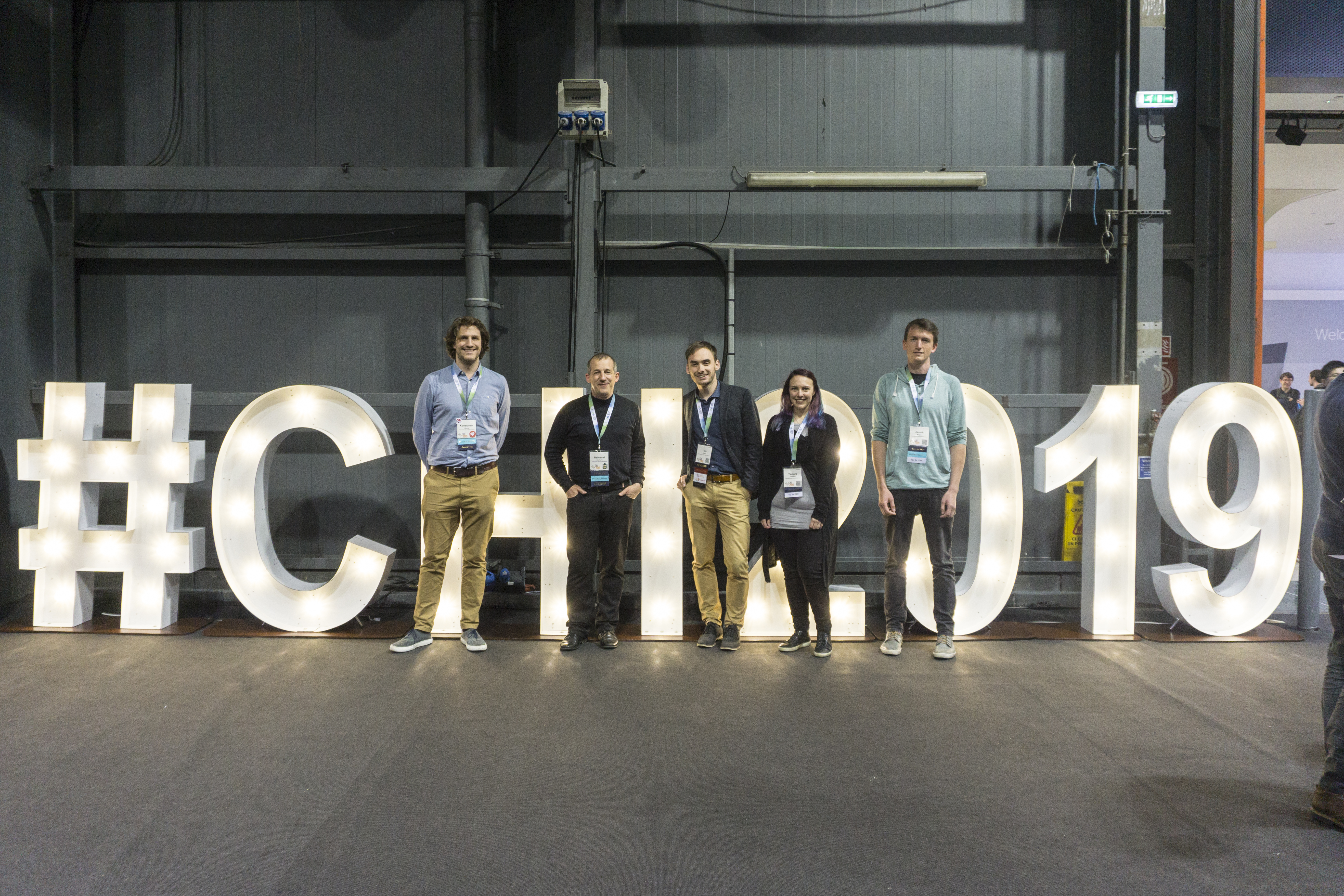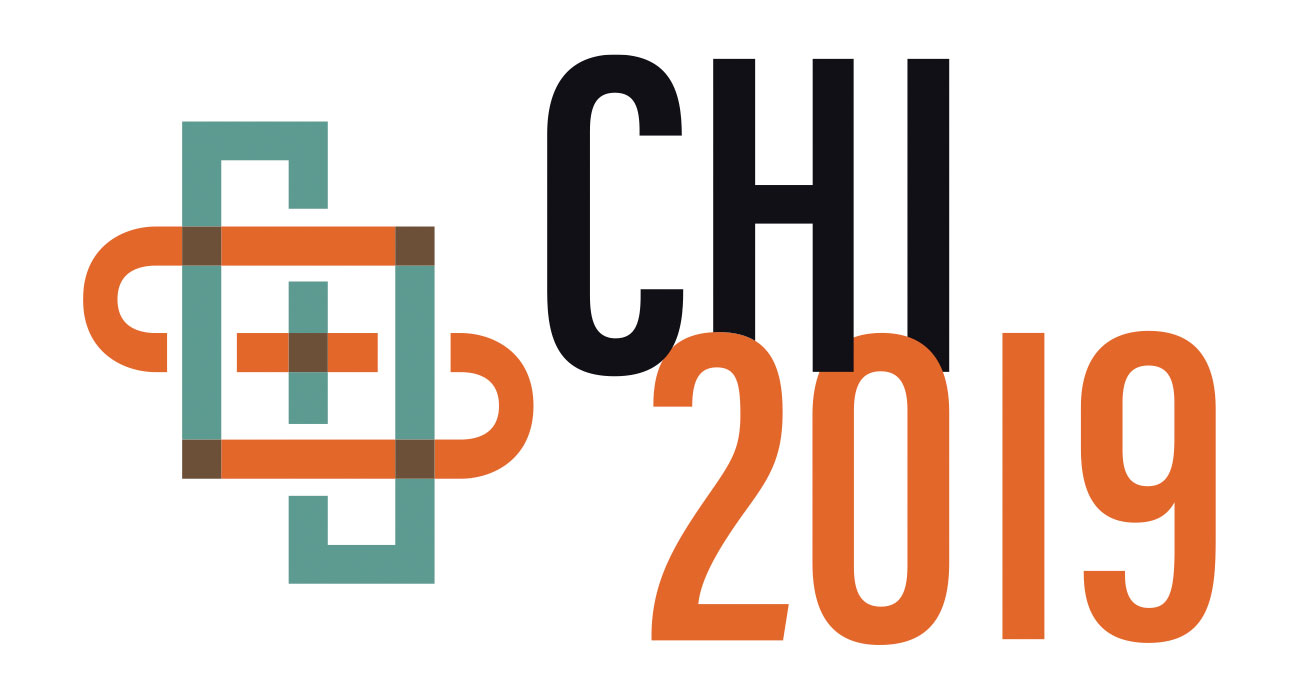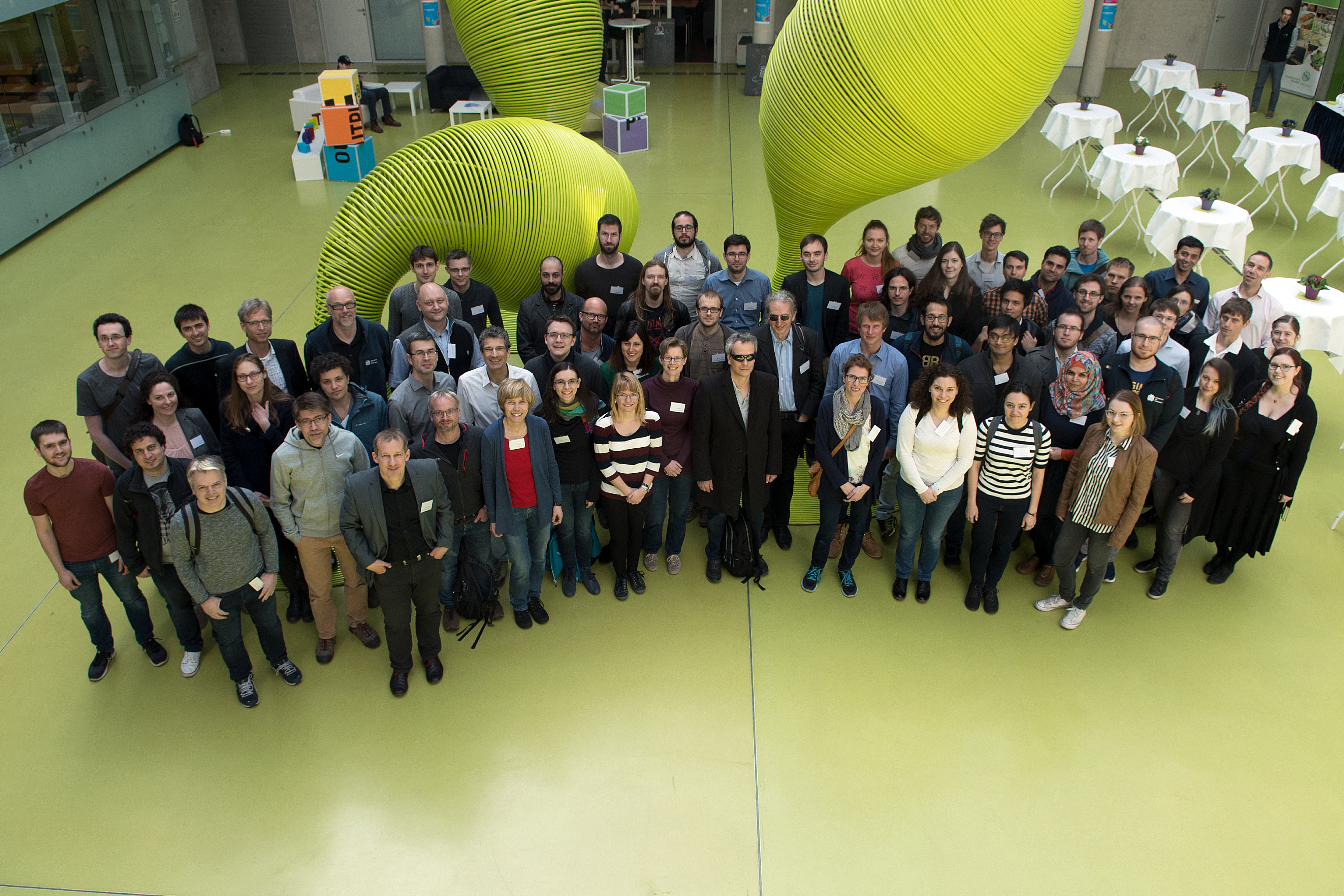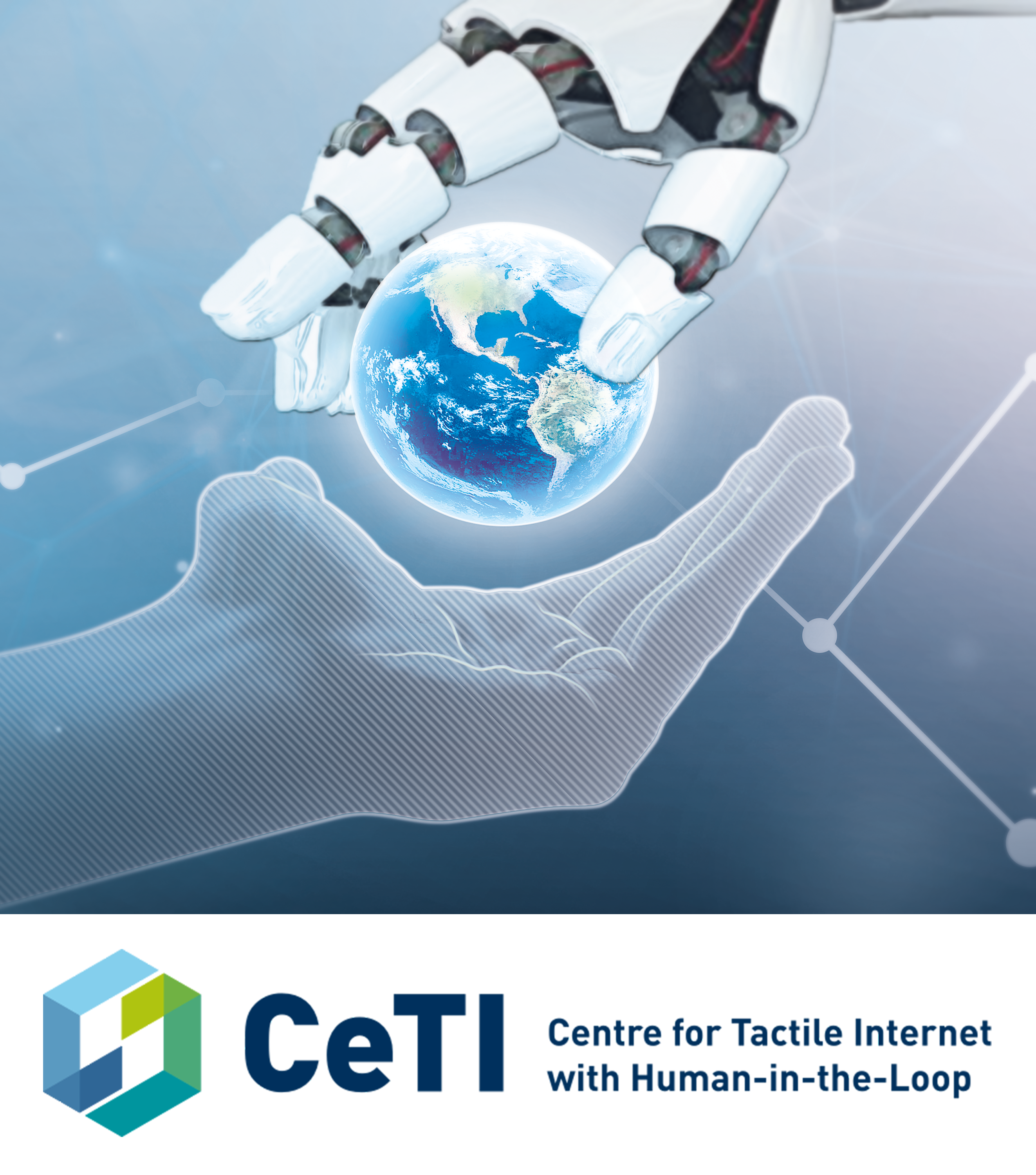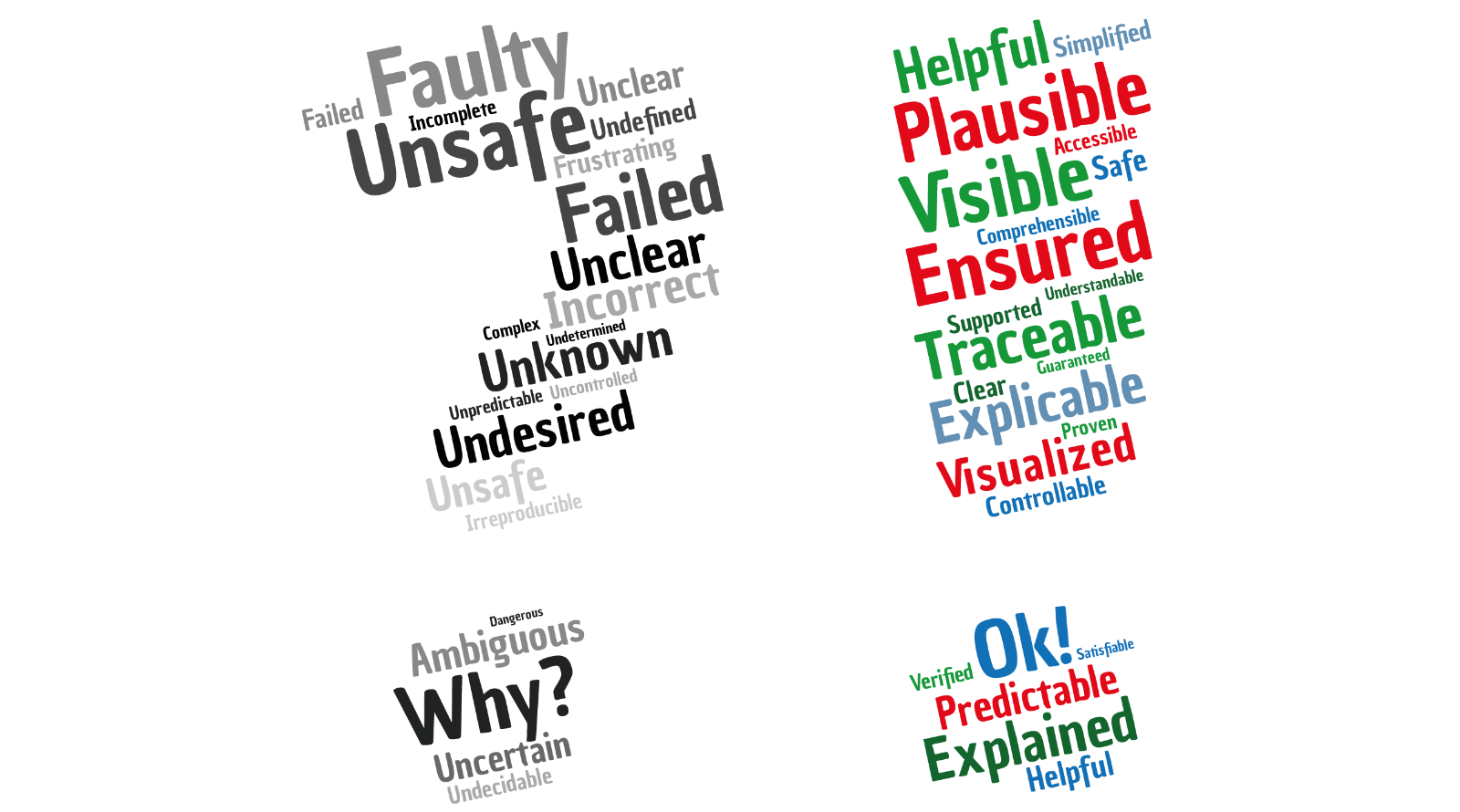The ACM Conference on Human Factors in Computing Systems (short CHI) took place in Glasgow, UK from May 4 to 9. Four of us represented the Interactive Media Lab Dresden by presenting four contributions in total (see news).
The presentation of our full paper Vistribute: Distributing Interactive Visualizations in Dynamic Multi-Device Setups certainly was one of the highlights. The paper is the result of a cooperation between Tom Horak and Raimund Dachselt with Andreas Mathisen and Clemens N. Klokmose from Aarhus University as well as Niklas Elmqvist from the University of Maryland. The focus of the work is on automatically distributing interactive visualizations in multi-device setups.
The conference started on Saturday with our participation in the Human-Centered Machine Learning Perspectives (HCMLP) Workshop where Raimund Dachselt presented our work Interactive Exploration of Large Decision Tree Ensembles, which is a result of our ongoing cooperation with ai4bd. On the weekend, Tom Horak participated in the Doctoral Consortium and presented his current progress in his doctoral program about Designing for Visual Data Exploration in Multi-Device Environments.

